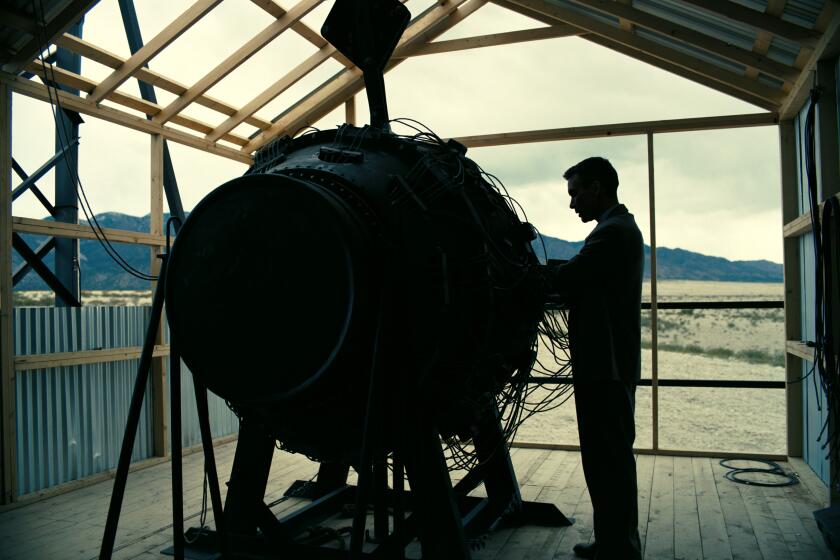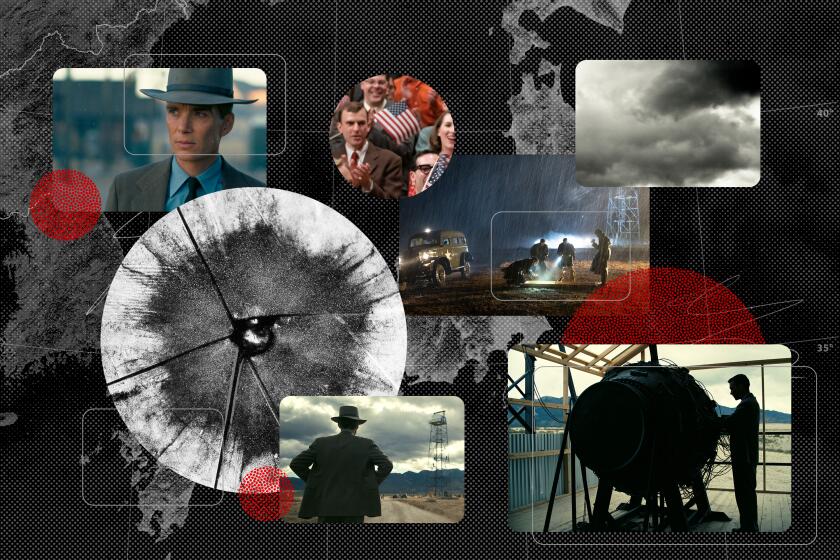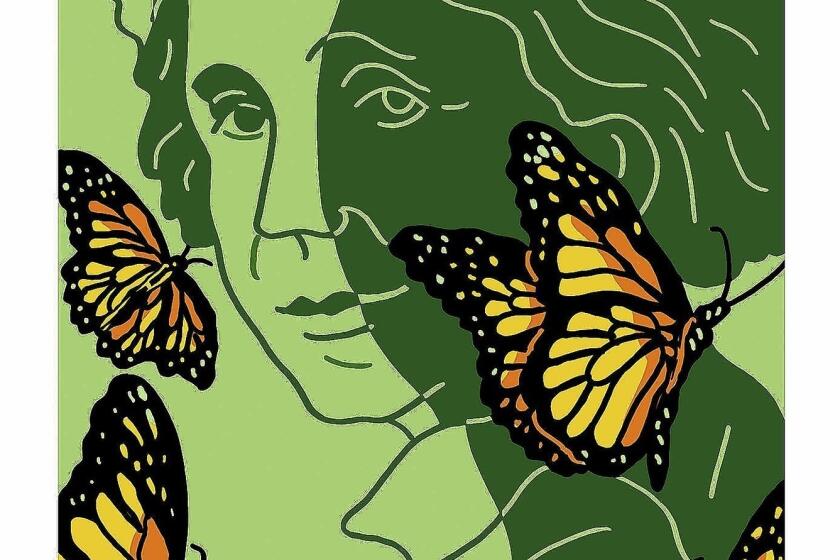What did ‘Oppenheimer’ leave out of the frame? This book of essays will help you refocus
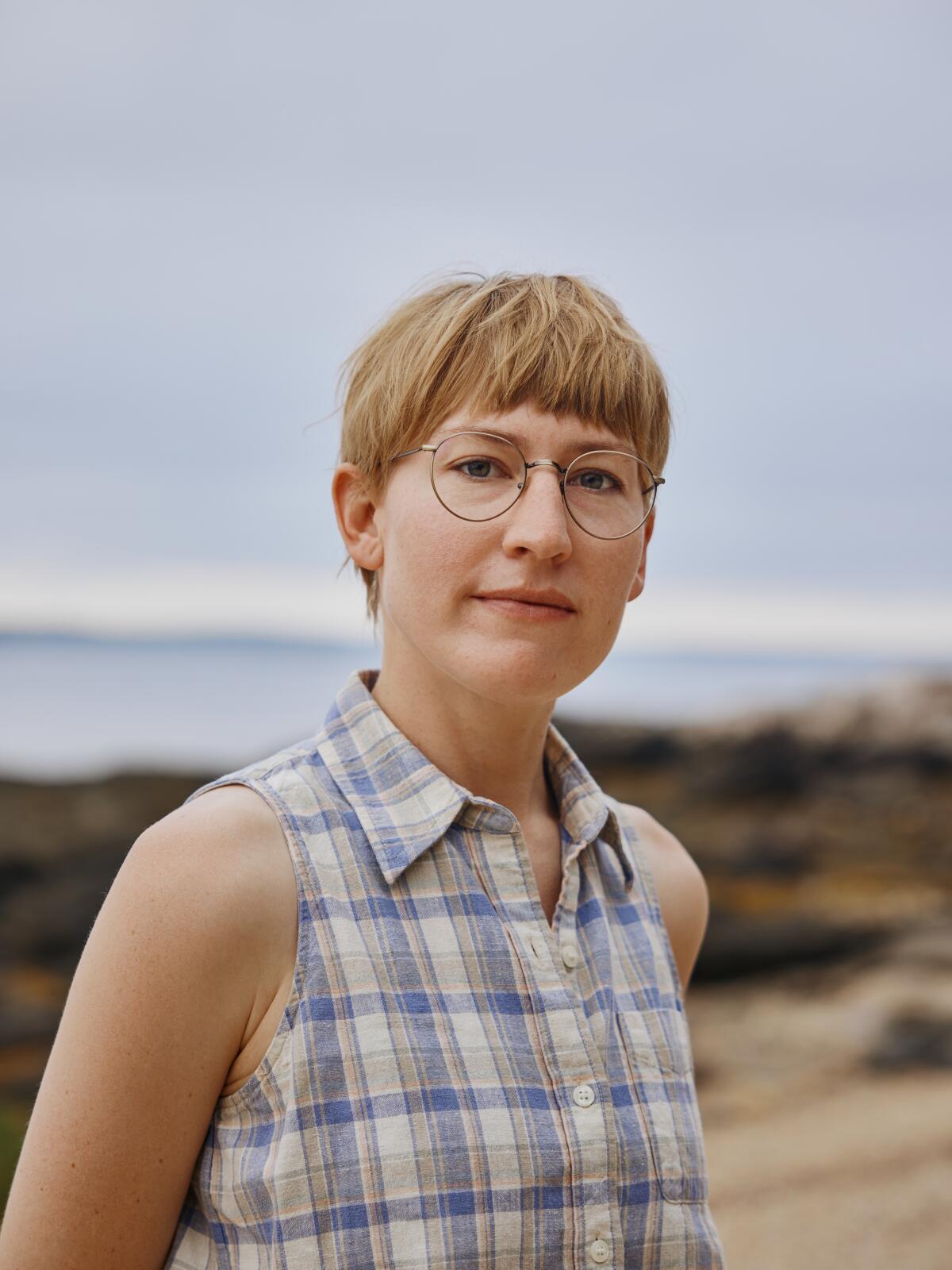
- Share via
Review
Thin Skin: Essays
By Jenn Shapland
Pantheon: 288 pages, $26
If you buy books linked on our site, The Times may earn a commission from Bookshop.org, whose fees support independent bookstores.
In Christopher Nolan’s “Oppenheimer,” the military asks the architect of the Manhattan Project what he’ll do with Los Alamos now that the bombs have been dropped. “Give the land back to the Indians,” he says. The brass scoffs. The work at Los Alamos will only intensify. There’s no returning the poisoned land.
Jenn Shapland’s new collection of essays, “Thin Skin,” circles the metaphor of being “thin-skinned,” which she defines as meaning to “feel keenly, to perceive things that might go unseen, unnoticed, that others might prefer not to notice.” Her previous book, “My Autobiography of Carson McCullers,” was a case in point: a brilliant dual biography focused on McCullers’ true sexuality and Shapland’s coming into her own identity as a lesbian.
In the opening essay that gives this follow-up its title, Shapland turns to what she notices in New Mexico. The Manhattan Project not only gave the world nuclear war, it pushed Indigenous and Latino people out of their homes and ruined the land and water. Of nearby Santa Fe, where Shapland lives, she writes, “What capitalism offers us: a stage set on which to live our lives without knowing whom we crush. In some ways it is the ultimate colonial insult, to adopt a bastardized version of an ancient cultural lifeway as an aesthetic to draw more white people. The city itself is a lifestyle brand.”
For historians, anti-nuclear advocates, Japanese Americans and others, Christopher Nolan’s film encourages viewers to flinch from the atrocity at its center.
In “Oppenheimer,” a three-hour film, the “Indians” are mentioned twice in passing. The ravages of toxic waste and the horrific aftermath of atomic war are never seen. Shapland’s book is the film “Oppenheimer” should have been, one that reflects on the Manhattan Project’s lasting impact on the world community. With a writing style that recalls the work of Eula Biss and a goal in solidarity with “Who is Wellness For?” by Fariha Róisín, Shapland opens “Thin Skin” with devastating statistics tying nuclear waste to cancer rates before turning to people, speaking with tribal leaders and even with her own parents.
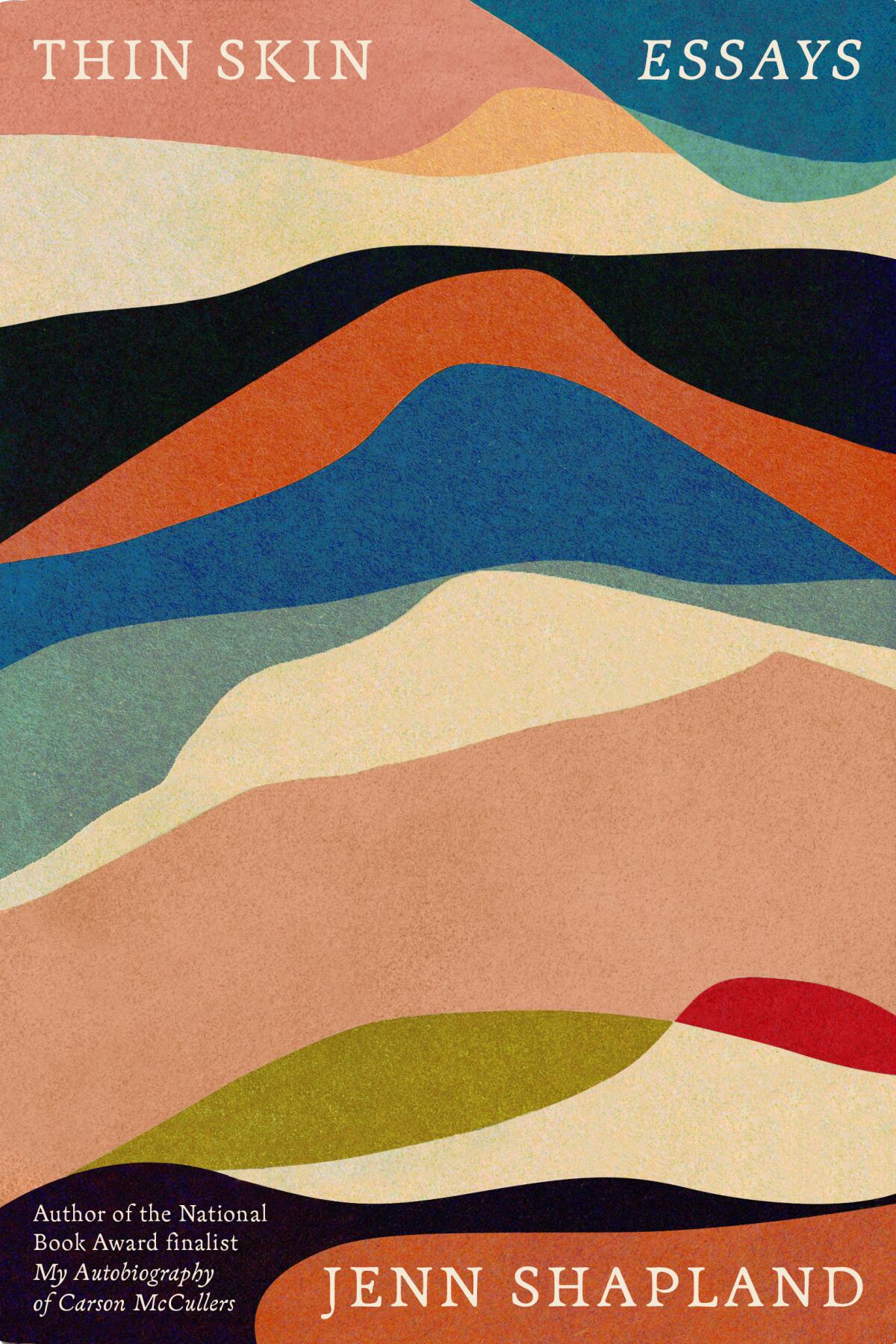
In “Strangers on a Train,” she recalls how the nightly news and “Cops” taught her that she had much to fear from Black men. In “The Toomuchness,” she comes to terms with her experience as a consumer. (“I wonder now if I was performing these past versions of femininity because I couldn’t understand or find my place in the present version.”) “Crystal Vortex” takes on writing, work and wellness. But Shapland’s closing essay is her most personal and uncompromising.
In “The Meaning of Life,” Shapland writes, “Refusing motherhood is at once a failure and a crime. … But no one talks about the possibility, the potential, the futures thwarted by having kids. … When I watch my friends become mothers, I feel a terrible loss.” Nor is she afraid to confront the fact that parenthood is now assumed for queer couples as well: “A baby is a great apology to the world, to your parents, for being queer.”
“Thin Skin” and “The Meaning of Life” have the most energy of the collection, but the work as a whole finds Shapland determined to reckon with the biggest challenges that face us as a society: environmental toxicity, racism, fascist control. “While I’m reading in the local paper about the ongoing capture of Indigenous women and children,” Shapland writes, “QAnon conspiracy theorists insist that white children are being sold on the popular furniture website Wayfair.”
Christopher Nolan’s movie has no interest in reducing the atomic bombings of Japan to a trivializing, exploitative spectacle, despite what some would want.
As we ramp up to the 2024 presidential election, with Donald Trump under indictment for attempting to defraud the American people, progressive thought and discussion can feel a lot like screaming into a tornado at best, preaching to the choir at worst. But books like “Thin Skin” are important. They run on hope, which is perhaps the only capital left to those who would like to see the human race survive.
Shapland’s use of the queer experience is deeply empowering. “In the late 1950s, while Rachel Carson was writing ‘Silent Spring,’ her best-known book, on the dangers of chemical pesticides, she was undergoing rounds of radiation treatment, chemotherapy, and surgery for breast cancer,” Shapland reveals. Carson was also writing to her lover, a married woman named Dorothy Freeman.
Shapland keeps finding gold in mining the lives of people like Carson and McCullers not just because of their unsung queerness, but because theirs is a different way. And perhaps, as she suggests, a better way. “The secretary of agriculture responded to ‘Silent Spring’ by asking ‘why a spinster with no children was so concerned about genetics,’” Shapland writes. It’s true that much of the political push for awareness on climate change comes from a call for the future — a children’s crusade led by Greta Thunberg. “But it wasn’t a future world that Rachel Carson was fighting for. It was the world in which she existed, it was the world she’d found with Dorothy.”
“Thin Skin” asks readers to consider themselves and the world they occupy — not the future, but the present. The choices we make for this world are for ourselves. “We can leave other things behind besides children,” Shapland writes. “Other forms of longevity exist, even if they are unquantifiable.”
Monarchs, milkweed and the spirit of Rachel Carson
At one point in “The Meaning of Life,” Shapland runs into a group of women in their 60s and 70s traveling and having a ball. “When they do not have children, or the burden of someday having them, or the need to prepare their lives to have them, they are at least free to be children themselves.” The alt-right, in response to “Black Lives Matter,” says “All Lives Matter.” “Thin Skin” motivates us to act like we believe it.
Ferri is the owner of Womb House Books and the author, most recently, of “Silent Cities San Francisco.”
More to Read
Sign up for our Book Club newsletter
Get the latest news, events and more from the Los Angeles Times Book Club, and help us get L.A. reading and talking.
You may occasionally receive promotional content from the Los Angeles Times.
